At sixty, Dr Reuben Abati remains a towering figure in Nigeria’s intellectual and media landscape; a man whose pen, mind, and voice have defined decades of national discourse. This essence came alive at his 60th birthday celebration and the launch of his three new books, ‘Portraits: People, Politics and Society’, ‘How Goodluck Jonathan Became President’, and ‘A Love Letter and Other Stories’. Sunday Ehigiator, who was in attendance, writes that the event was more than a ceremony; it was a testament to a life devoted to ideas, words, and the unending pursuit of truth; the story of the pen, the man, and the mind behind some of Nigeria’s most profound commentaries
The crowd inside the Nigerian Institute of International Affairs (NIIA), Victoria Island, Lagos, was thick with admiration and nostalgia. Old friends, former presidents of Nigeria, governors, business moguls, media veterans, clergy, and academics gathered under one roof to celebrate a man whose voice and pen have long shaped Nigeria’s public conversation: Dr Reuben Abati.
It was no ordinary birthday. At 60, Abati stood at the intersection of legacy and reflection, surrounded by peers who have walked the corridors of power and thought with him. The occasion combined his diamond jubilee with the launch of three new books, a testament to his lifelong marriage to words.
From the moment the former Presidents Olusegun Obasanjo and Goodluck Jonathan walked in, their arrival sparking warm applause, it was clear the evening was rare but not unexpected. It was a gathering of intellect, memory, and affection for a man whose career has straddled journalism, politics, and academia with uncommon grace.
A Celebration of Words and Worth
Executive Commissioner for Operations at the Federal Competition and Consumer Protection Commission (FCCPC), Mr Louis Odion, who anchored part of the session, set the tone when he described Abati as “a national asset whose words have built bridges between knowledge and governance.”
As the lights dimmed slightly, a short video montage played, featuring clips of Abati from his newsroom days at The Guardian, his tenure as Special Adviser on Media to President Jonathan, his family life, his growth in the industry, and his return to public commentary on radio and television.
By the time the applause settled, the mood was electric. Then, one after another, some of Nigeria’s most prominent voices took the stage to celebrate “the man, the pen, and the mind.”
Jonathan: ‘A Scholar, Brave and Intelligent’
Former President Goodluck Ebele Jonathan, calm and reflective as always, began his tribute with a touch of humour and nostalgia.
“This is a special day,” he said, smiling toward Abati. “You are celebrating your diamond jubilee today. I say happy birthday to my younger brother and good friend.”
Jonathan recalled their first encounter in the early days of social media, when Abati had been invited to review a book compiled from Jonathan’s Facebook posts by the late Oronto Douglas. “When Reuben took on that task,” Jonathan continued, “I realised this was somebody who had something upstairs; a scholar, brave and intelligent.
“From my years as deputy governor to president in four years; that was a miracle. It’s only God that made it possible. But I’m glad Reuben documented those days with honesty and intellect. He remains one of the few journalists who can balance loyalty with truth.”
Jonathan praised Abati’s new books as “important contributions to knowledge” and said he looked forward to reading Abati’s version of his presidential years. “I always like those who write about me,” He said, chuckling, “because sometimes, it’s hard to write about yourself.”
Obasanjo: ‘You Have Made Progress, Now Make Success’
If Jonathan’s tone was affectionate, Chief Olusegun Obasanjo, former President and elder statesman, brought a fatherly gravity to the celebration.
“I had to be here because Reuben Abati is one of those who give me hope that Nigeria still produces thinkers.”
Obasanjo spoke of their early acquaintance nearly three decades ago, when Abati was a young journalist “with a sharp pen and sharper ambition.”
He looked straight at Abati and said, “Over the years, you have made progress; as a journalist, as a commentator, as a community leader, even as a politician. But there is a difference between progress and success. You have made progress; now, you must make success.”
Softening his tone, he continued, “I am happy that in my lifetime, I can see a son in whom I am well pleased; one who has matured, who has understood, and who continues to walk the path of wisdom.”
Obasanjo concluded his remarks with a philosophical charge that drew nods from across the hall: “Life is about chances, choices, and consequences. Nigerian leaders have had their chances. Now the current generation has their chance; may God give you the wisdom to make the right choices so that the consequences will be beneficial to all.”
Kukah: ‘The Nigerian Story Must Be Retold’
No Nigerian gathering of intellect and public conscience is complete without Bishop Matthew Hassan Kukah, the Catholic Bishop of Sokoto.
Taking the podium, Kukah’s voice carried both humour and weight. “I came here not just to celebrate Reuben Abati, but to remind us that his kind of journalism, deeply reflective, morally grounded, and nationally conscious, is what our country desperately needs.”
Kukah said Abati’s life demonstrated that intellect and integrity could still coexist in public service.
“We live in a country where words are cheap,” he said. “But Reuben has spent his life giving words their true value by connecting them to action, to ethics, and to truth. That is what it means to be a public intellectual.
“The task before you now is to mentor the next generation, to make sure the Nigerian story is retold, this time by those who know how to tell it.”
The Reviewer’s Voice: Louis Odion’s Deep Dive
When veteran journalist Louis Odion took the stage to review Abati’s books, the hall fell silent. His remarks blended critique and admiration.
Odion described Abati’s latest works, a trilogy of essays and reflections on governance, media, and society, as “a national archive of conscience.”
“These books,” Odion said, “are not just about events or politics. They are about Nigeria’s soul. Reuben writes with the mind of a philosopher, the discipline of an editor, and the courage of a citizen.”
He dissected each book briefly, noting that Abati’s prose remains elegant and precise. “His essays remind us that journalism is not about noise; it’s about understanding. And Reuben has spent his life helping Nigerians understand themselves.”
Odion ended with a line that earned loud applause: “If truth had a public relations officer in Nigeria, his name would be Reuben Abati.”
The Publisher’s Perspective
Representing his publishing house, the Publisher of Caltop Publications Nigeria Limited, Mr Ayo Arowosegbe, offered a rare behind-the-scenes glimpse into the making of Abati’s three books.
“I have read Reuben’s articles since my earliest days in publishing,” he said. “His lucidity and depth made it easy to say yes when the opportunity came to publish him.”
Arumorosefe revealed that hundreds of Abati’s archived essays had to be reviewed, edited, and curated for publication. “The challenge was not finding good material, but deciding which excellent pieces to leave out.”
He described the books as “a legacy project” that will serve as reference points for students, policymakers, and researchers for years to come. “We are proud to have helped turn Reuben Abati’s words into a monument of ideas.”
The Dignitaries’ Roll Call
It was a night of powerful presence. Among those seated in the front rows were Governor Alex Otti of Abia State, former Ogun State Governor Gbenga Daniel, and Ambassador Patrick Dele Cole.
Also in attendance were media executives, including Managing Director and Editor-in-Chief of New Telegraph, Ayodele Aminu; Commissioner for Information in Delta State, Charles Aniagwu, who represented Governor Sheriff Oborevwori; and Guardian Publisher, Lady Alex Ibru, who brought warm recollections of Abati’s years at The Guardian newspaper.
In her brief remarks, Lady Ibru described Abati as “a man who gave journalism dignity when dignity seemed unfashionable.”
Representatives from the diplomatic community, academia, the clergy, and the media filled the hall. The mood was celebratory but deeply intellectual, fitting for a man who has spent his life dissecting Nigeria’s problems with precision and hope.
The Pen and the Presidency
Few journalists have crossed the line between the newsroom and the corridors of power as seamlessly as Reuben Abati. His appointment as Special Adviser on Media and Publicity to President Jonathan in 2011 marked a defining chapter, one that exposed him to both the glory and the glare of politics.
In his speech at the event, Abati reflected on those years with humility. “I didn’t go to the government to become a politician,” he said. “I went there to serve, to understand governance from the inside, and to prove that intellect still has a place in politics.”
He described public service as “a university of reality,” adding that his time at the Villa reshaped his understanding of leadership and loyalty. “It taught me that criticism is easy; contribution is hard. But both are necessary if we want a better country.”
A Scholar, Journalist, and Citizen
Dr Reuben Abati’s academic credentials are as formidable as his journalism. A graduate of Theatre Arts from the University of Calabar, with a doctorate from the University of Ibadan, Abati began his career in academia before joining The Guardian newspaper in 1989.
There, he rose to become Chairman of the Editorial Board, earning a reputation for fearless, intellectually rich commentary. His columns, often witty, always thoughtful, became must-reads across Nigeria’s political class.
Abati’s voice on radio and television, particularly as co-anchor of Arise News Morning Show, has continued that legacy. His sharp intellect and calm articulation have made him one of the country’s most respected public commentators.
Abati’s three new books, unveiled during the ceremony, are titled ‘Portraits: People, Politics and Society’, ‘How Goodluck Jonathan Became President’, and ‘A Love Letter and Other Stories’.
Each book captures different stages of his intellectual journey, from his days as a critic to his years as an insider, and now as a reflective elder statesman.
Louis Odion described them as “three mirrors held up to Nigeria’s conscience.” The publisher called them “monuments of meaning.”
Reflections @60
When Dr Abati finally took the microphone, the hall erupted in applause. He stood, smiling, and waved gently before beginning in his familiar baritone.
“I feel humbled,” he said. “At 60, you begin to realise that life is not about what you own, but about what you’ve given. And if I’ve given anything at all, it is words; words to help us think, to help us hope, to help us see.”
He thanked his family, friends, and mentors for their support, adding with characteristic humour: “I thank all those who have criticised me; they helped me write better.”
Reflecting on his career, Abati said journalism remains the backbone of democracy. “The media must never surrender to cynicism or compromise. Our role is to remind power of its limits, and the people of their strength.”
He dedicated his books “to the young Nigerians who still believe in the power of ideas.”
The Man behind the Mind
Beyond the public glare, Reuben Abati is known as a family man, avid reader, and lover of theatre and music. Friends describe him as witty, deeply spiritual, and intellectually restless, always reading, writing, or debating.
His colleagues recall his disciplined writing routine at The Guardian: arriving at the office before dawn despite just leaving a late-night event, working in silence, and producing essays that resonated across classes.
Those who know him closely say his success lies in his ability to “combine scholarship with empathy.” He writes about policy, but always from the perspective of the people affected by it.
A Night of Legacy
As the event drew to a close, the crowd rose for a standing ovation. The applause was not just for the man, but for the journey, from classrooms to newsrooms, from the State House to the airwaves.
Bishop Kukah’s earlier words lingered in the air: “Reuben Abati represents the bridge between knowledge and nationhood. His life reminds us that Nigeria’s redemption will come, not from noise, but from thought.”
For many, the night was more than a celebration of one man’s milestone. It was a call to reawaken Nigeria’s intellectual spirit, a reminder that the pen, when wielded with courage and conscience, still holds power.



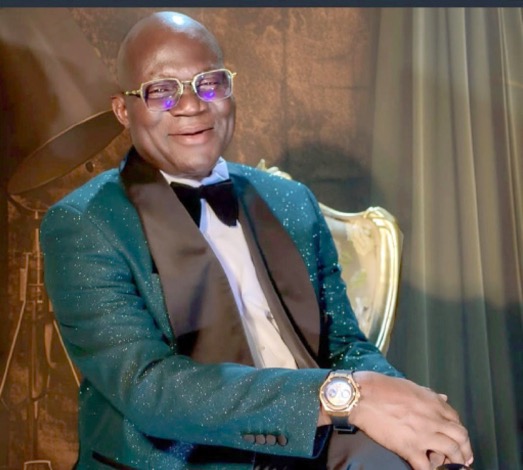



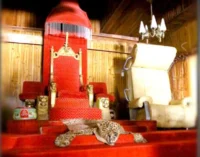

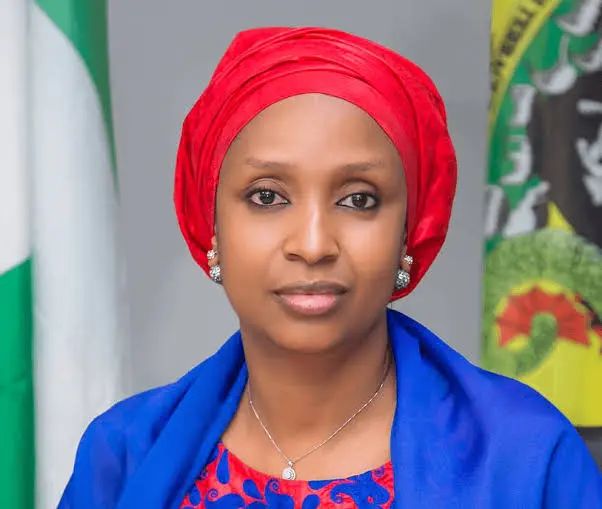
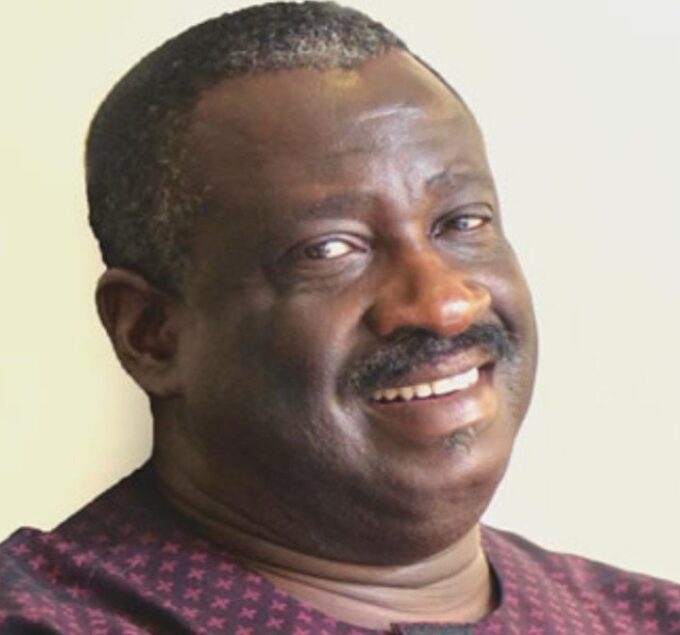





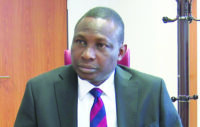
Leave a comment